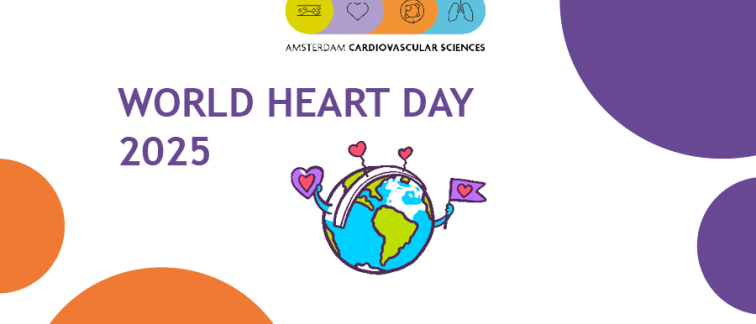This article is part of aspecial series by Amsterdam Cardiovascular Sciences (ACS) in celebration of World Heart Day. In this series, we highlight innovative research projects and collaborations that contribute to the prevention and treatment of cardiovascular diseases.
Revolutionizing Aortic Dissection Risk: The GEN-TAAD Initiative Leads the Way
Aortic dissection is a life-threatening cardiovascular emergency in which a spontaneous tear forms in the inner layer of the aortic wall, the body’s main artery. Blood enters the space between the layers, compromising the integrity of the vessel and often leading to sudden death, if not treated immediately. Current risk prediction relies mainly on the anatomical size of the aorta, but most dissections occur in patients whose aortic diameter does not meet the threshold for surgical intervention. This highlights a critical gap in clinical practice and underscores the need for more precise risk models.
GEN-TAAD: International Collaboration
The GEN-TAAD initiative (Genetics of thoracic aortic aneurysms and dissections) brings together 19 academic and clinical centers across 9 countries. Under the leadership of cardiothoracic surgeon and associate professor Nimrat Grewal (Amsterdam UMC and Yale School of Medicine), the consortium aims to revolutionize early detection and prevention of thoracic aortic dissection.
Innovative Approaches
GEN-TAAD uses cutting-edge methods such as polygenic risk modelling, high-resolution patient data, stem cell–based disease modelling, and machine learning. The project is building the world’s largest genetic dataset for thoracic aortic disease and developing risk models that consider factors like sex and ethnicity. Patient-derived stem cells are used to test disease mechanisms, while single-cell transcriptomic data helps identify new therapeutic targets.
Patient-Centered Research
Collaboration with international experts and patient organizations, including Stichting Aortadissectie Nederland (SADN) and The Thoracic Aortic Dissection Charitable Trust, ensures that research is closely aligned with patient needs and perspectives.
Towards Personalised Treatment
By moving beyond traditional diameter cut-offs and focusing on the underlying biology, GEN-TAAD aims to enable earlier, more effective, and personalized treatment for patients at risk of aortic dissection. As a clinician-scientist, Grewal’s work bridges the operating room and the lab, with a strong focus on health inequality, sex differences, and inclusive risk models for underrepresented patient groups. In 2024, she received the Dekker Senior Clinical Scientist grant from the Dutch Heart Foundation for her work on GEN-TAAD.

happens when dissection strikes without warning. With GEN-TAAD, we aim to shift from reacting to preventing, using genetics, patient data, and stem cell science to better identify who is truly at risk
GEN-TAAD is funded by the Dutch Heart Foundation.
Want to know more about GEN-TAAD?
Visit this webpage for updates on the project, recent publications, and upcoming events.
Researchers interested in thoracic aortic disease, genetic risk prediction, or interdisciplinary collaboration are warmly invited to get in touch. GEN-TAAD is always open to new ideas, perspectives, and partnerships.

